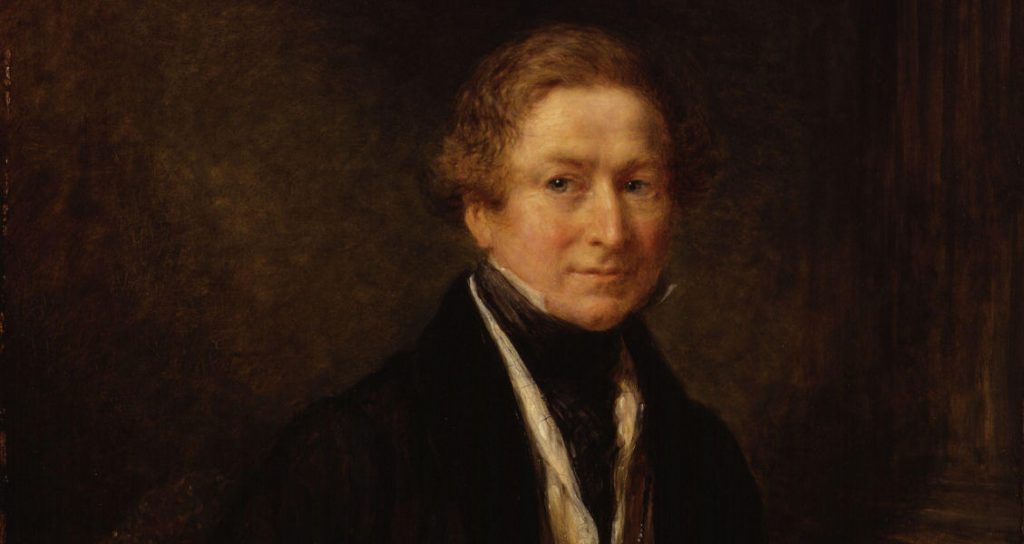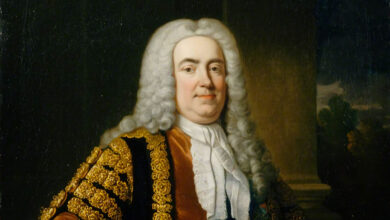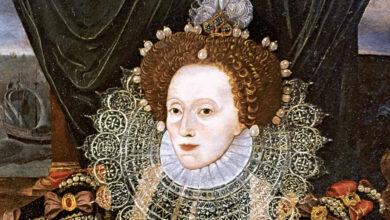
Podcast: Play in new window | Download
Subscribe: Spotify | Amazon Music | Youtube Music | RSS
Sir Robert Peel was Born in Bury, Lancashire, on 5 February 1788, and was by no means born into a poor family as his father was one of the wealthiest businessmen in Britain at the time being a very successful textiles manufacturer. Robert had the classic upbringing of British nobility and was taught by private clergy tutors throughout his life including by Charles Lloyd, who, later in life, with the help of Peel, became Bishop of Oxford. The family also courted friendships with other influential individuals of the era. For example, as a child, he was friends with the young Lord Byron.
Sir Robert Peel initially studied law but was also a captain with the Manchester Regiment of Militia and went on to become a lieutenant in the Staffordshire Yeomanry Cavalry.
By the age of 21, as well as having an interest in the military, he also started to show an avid interest in politics and in 1809 he became the MP for Cashel, in Tipperary, Ireland, although this may not be as impressive as it first seems as he stood unopposed in a constituency that only had 24 electors. He did, however, have significant support from his wealthy father as well as the chief secretary for Ireland at the time, a certain Sir Arthur Wellesley who went on to become the Duke of Wellington and would prove to be an important political ally of Sir Robert Peel over the next quarter-century.
The young politician had success early on when in 1810 he became the Under-Secretary of State for War and the Colonies and in 1812 he was appointed Chief Secretary for Ireland. This was significant as Peel fiercely opposed allowing Catholics to be admitted to Parliament since Catholics refused to swear the oath of allegiance to the crown leaving Robert Peel and many others to be suspicious of their motives and loyalty. Peel’s bill ended up being defeated, but only by a very narrow vote.
By 1818 Sir Robert Peel was no longer Chief Secretary for Ireland but in 1819 he was chosen as the Chairman of a select committee appointed by the House of Commons called the Bullion Committee. The purpose of this committee was to help the British economy recover after all the war debt that had been accumulated during the wars against Napoleon. Now that the Napoleonic Wars were over, the English government sought a way to help stabilise its currency and with Sir Robert Peel leading the charge a movement was directed to put the British Pound back on the gold standard, meaning that Britain’s economic unit of account would be based on a fixed quantity of gold, as he thought this might help reduce or even remove inflation. By 1821, his goal was realised, and England was back on the gold standard.
On 8 June 1820, Sir Robert Peel married Julia Floyd and the couple went on to have seven children together. By this time he was one of the young stars of the Tory party and was made Home Secretary twice, first in 1822 and then again in 1828 under the Prime Ministership of the Duke of Wellington and was widely considered to be number two in the party behind his long-time political ally.
In 1829, he created the thing that he is usually most remembered for when he established the Metropolitan Police Force in London which was based in Scotland Yard and employed some 1000 constables who initially became known as bobbies or peelers. This was so successful that Sir Robert Peel became known as the father of modern policing.
In 1834 King William IV invited the Tory party to again form a government having previously been ousted in favour of the Whigs. Sir Robert Peel was appointed Prime Minister but couldn’t take his post for three weeks as he was in Italy, leaving the reins in the capable hands of the Duke of Wellington until his return. This first term as Prime Minister was not a successful one though as the party did not have a parliamentary majority and faced opposition at every turn, ultimately leading to the Tories resigning, leaving the Whigs free to return to power. However, it was during this first term, Peel issued the Tamworth Manifesto which is the document that formed the basis upon which the modern Conservative Party was based.
Although asked to form a government by Queen Victoria in 1839, Sir Robert Peel refused due to the close affiliation the Queen had with the leader of the Whig Party, Lord Melbourne and the fact that many of Queen Victoria’s entourage were the wives and other relatives of prominent Whig politicians. He asked the queen to change some of this entourage, but she refused, a dilemma which became known as the Bedchamber Crisis.
What Sir Robert Peel would really be known for, in addition to all his accomplishments previously, would come during his second term as prime minister, which began in 1841. During this period his proposed income tax helped the British government bring in enough money that it was able to remove tariffs on various goods which proved useful at a time of economic recession. He was also instrumental in helping pass the Factory Act, which limited the number of hours that children and women could work, set up the first safety standards for machines, and would be the forerunner of all safety rules and regulations in the British workplace. However, one of the bills that he introduced would also be responsible for bringing down the government as he was seen to turn against the influential landowners. This was the repeal of the Corn Laws which had been designed to support revenues from agriculture by restricting imports of grain. Sir Robert Peel resigned as Prime Minister on 29 June 1846.
Although Sir Robert Peel survived an assassination attempt in 1843, he couldn’t cheat death a second time when, at the age of 62, he was thrown from his horse during a riding accident on 29 June 1850 and would die three days later due to the injuries he sustained. His legacy as one of the great statesman of England is cemented forever in the foundation of the Conservative Party which he helped to form; the instigating of safety laws, rules, and regulations to help protect women and children in the workplace and of course the creation of a modern police force.
Podcast: Play in new window | Download
Subscribe: Spotify | Amazon Music | Youtube Music | RSS




